TAHUA
31 Once again. And
again and again and again. The cycles of the multiple life refreshing
streams of water
would
roll on
forever → ∞ (like a horizontal 8), cfr the pair Gb4-16--17. Very
nice!
Maitaki!
... Then Hotu said to Teke, 'There shall be an equal number of
people (i.e., of both sexes) when you take them aboard the canoe
... [E:71]

|
 |

|
|
April 26
(*36) |
hipu |
|
"March 16
(*360) |
|
FEBR 21 |
... Then the big Fish did swallow him, and he
had done acts worthy of blame. Had it not been that he (repented
and) glorified Allah, He would certainly have remained inside
the Fish till the Day of Resurrection. - Qur'an, chapter 37
(As-Saaffat), verse 139–144. But We cast him forth on the naked
shore in a state of sickness, And We caused to grow, over him,
a spreading plant of the
gourd kind. And We sent him (on a mission) to a hundred
thousand (men) or more. And they believed; so We permitted them
to enjoy (their life) for a while. - Qur'an, chapter 37
(As-Saaffat), verse 145–148 ...

In ancient Egypt the god of eternity was
Heh - in the midst
of signs for fresh water in form of a pair of tadpoles:
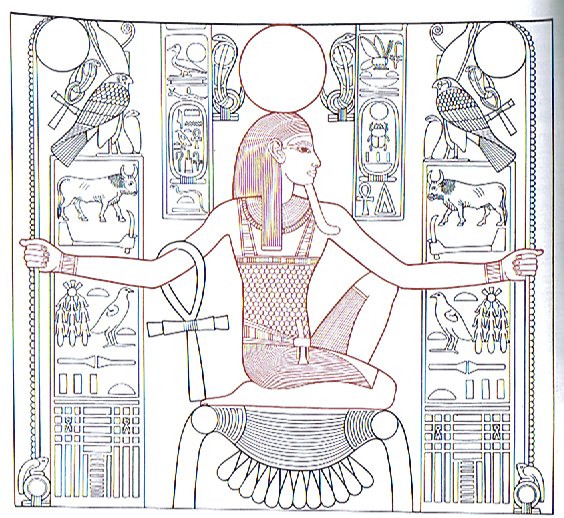
And this emblem, only slightly
different, we can recognize also in ancient Mesopotamia; here with the
name of the Great One:

The Great One was standing on a Fish, which confirms the idea
that our Aquarius was the same figure, because
immediately below him was the Southern Fish:
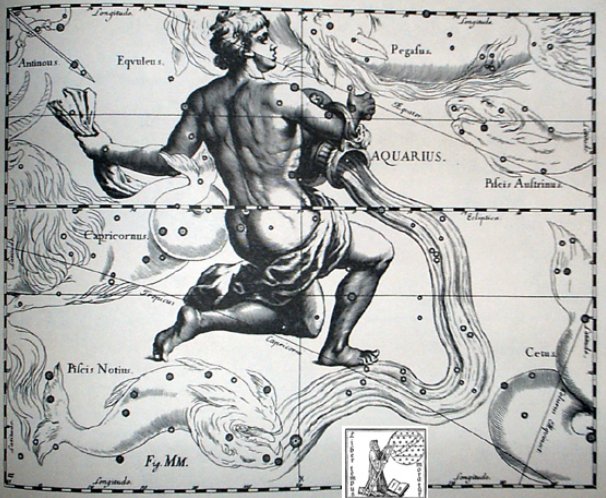
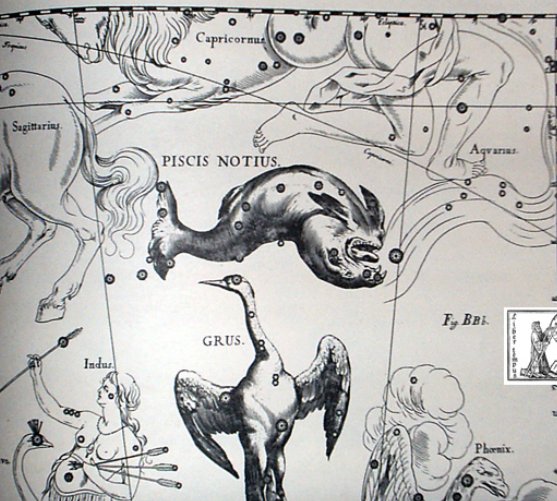
And, the Mouth of this Fish down in the south (29° 53′ S) -
Fom-al-Haut - was probably intended to mark where the life cycle
of Mother Nature was due to begin anew. We have documentation of where
this place was,
both in form of culmination (at 21h) and of heliacal rising:
| |
365 days |
| |
(80 + RA / 24h * 365¼) |
|
Day of culmination |
|
|
Atlas |
May 16 (136, *56) |
*229 |
Dec 31 (365,
*285) |
135 |
|
Betelgeuze |
June 17 (168, *88) |
*226 |
Jan 29 (394,
*314) |
138 |
|
CASTOR |
July 12 (193, *113.4 =
*41.4 + *72.0) |
'226 |
Febr 23
(Terminalia) |
138 |
|
MAY 9 (129 =
193 - 64) |
*226 |
DEC 21
(SOLSTICE) |
138 |
 |
|
Alkes |
Sept 3 (246) |
*229 |
April 20 (110) |
135 |
|
Denebola |
Sept 15 (258) |
*230 |
May 3 (123) |
134 |
|
Gienah |
Sept 22 (265,
*185) |
*230 |
May 10 (130, *50) |
134 |
|
ACRUX |
Sept 24 (267,
*187) |
*231 |
May 13 (133. *53) |
133 |
|
JULY 22
(*123 = *187 - *64) |
*231 |
MARCH 10
(*354
→
'290 + *64) |
| |
|
Thuban |
Oct 19 (292,
*212) |
*230 |
June 7 (158, *78) |
134 |
|
Arcturus |
Oct 22 (295,
*215) |
*227 |
June 8 (159, *79) |
*136 |
|
Zuben
Elgenubi |
Oct 31
(304, *224) |
|
June 17 (168, *454.
*88) |
*136 |
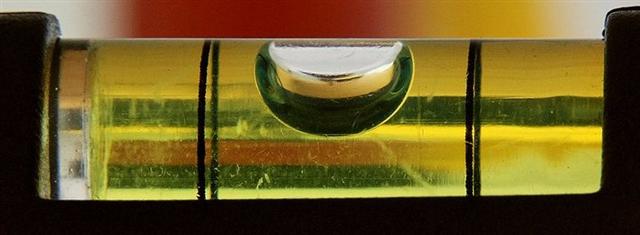 |
|
Vega |
Dec 27 (361,
*281) |
*227 |
Aug 12 (224, *144) |
*137 |
|
Alphekka Meridiana |
Jan 5 (*290) |
*220 |
Aug 13 (225, *145) |
'146 |
|
Deneb Cygni |
Febr 7 (38, *323) |
*221 |
Sept 16 (259,
*179) |
*144 |
|
Fomalhaut |
March 3 (62, *348) |
*236 |
Oct 25 (*584, *218) |
|
|
* |
|
Schedir |
March 29 (88, *8) |
*233 |
Nov 18 (322, *242) |
131 |
|
Alrisha |
April 19 (109, *212 -
*183 = *29) |
*232 |
Dec 7 (341,
*261) |
132 |
| Menkar |
May
4 (124, *44) |
*231 |
Dec 21 (355,
*275) |
133 |
|
*364 - *229
→ 135 etc. And *144 (August 12) = *281 (December
27) - *137, etc. |
In my table above we can see that March 3 (*348) was the day for
the heliacal rising of Fomalhaut, and that October 25 was
its culmination night
- significantly 236
(= 8 * 29½) right ascension days later.
We have recently visited the culmination of Fomalhaut at
Gb4-16 (107
→ 2 * 236 - 365 = 1½ * 314 - 364), in the day where
the Sun was due to be, so to say, 'pushed up' by Cetus. And in the following
night would therefore come the culmination of
Fum-al-Samakah (→
Samekh) in the northern hemisphere (03° 49′ N)
... In rongorongo times the last Greek lettered star
in Orion (ξ) rose
with the Sun in June 21. The letter seems to have originated
from the Phoenician letter samekh (tent peg, supporting
prop), which in turn may have been derived from the ancient
Egyptian djed column ...
... It must be admitted, however, that the
task of raising the sky was not always a long and arduous one.
In the New Hebrides of Melanesia the sky was formerly so low
overhead that a woman who was pounding roots in a mortar
happened to strike the sky with her pestle. Greatly annoyed at
the interruption she looked up and cried angrily,
'Go on up higher!' Whereat the
sky meekly obeyed her ...
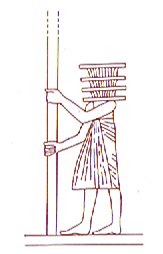
|
FEBR 17 |
18 |
19 (50) |
20 (*336) |
21 (400 + 17) |
22 (53) |
 |
 |
 |
 |
 |
 |
|
Gb4-13 |
Gb4-14 |
Gb4-15 |
Gb4-16 (336) |
Gb4-17 (108) |
Gb4-18 |
|
ξ¹ Ceti |
MIRA |
*34 |
ξ Arietis (*35.0) |
*36 |
*37 |
|
April 22 (112) |
23 (*33) |
24 |
25
(480, 115) |
26 |
26 |
|
Oct 22 (295) |
23 |
24 |
25 |
26 |
27 (300) |
|
ARCTURUS |
KHAMBALIA |
*217 |
FOMALHAUT |
FUM-AL-SAMAKAH |
η Centauri (*220.4) |
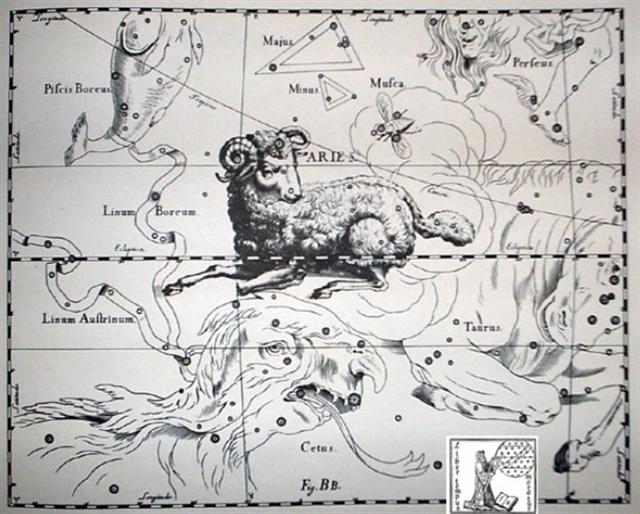
|
FEBR 22
(418) |
TERMINALIA |
24 (*340) |
25 (56) |
26 (400 +
22) |
2-27 |
FEBR 28 (59) |
 |
 |
 |
 |
 |
 |
 |
|
Gb4-18 |
Gb4-19 |
Gb4-20 (111) |
Gb4-21 |
Gb4-22 (342) |
Gb4-23 |
Gb4-24 |
|
*37 |
*38 |
*39 |
*40 |
BHARANI |
*42 |
DENEBOLA |
 |
 |
 |
 |
 |
 |
 |
|
Ra3-7 |
Ra3-8 |
Ra3-9 |
→ 8 * 8 |
Ra3-11 (65) |
Ra3-12 |
Ra3-13 |
 |
 |
 |
 |
 |
 |
 |
|
Aa6-77 (1157) |
→ 6 * 78 = 468 → 118 + 350 |
Aa6-79 |
Aa6-80 |
→ 121 + 1040 |
Aa6-82 |
Aa6-83 (1163) |
|
April 27 |
28 (118) |
29 |
30 (120) |
May 1 |
2 |
3 (123, 488) |
|
°April 23 |
24 |
25 (*35) |
26 (116) |
27 |
28 |
29 (*39) |
|
Liberalia |
"March 18 |
19 (78) |
20 |
21 |
22 (81) |
23 |
| ma iko - mai a here
tura koia ko te manu |
*40 |
BHARANI |
*42 |
DENEBOLA |
|
Iko. 1. To take away, to carry off, to
despoil, to seize food, to possess oneself of, to dispossess, to
deprive, to intercept, to subtract, to usurp, to arrogate to
oneself. Ikoa, to seize, to take possession. Ikoiko,
to seize, to deprive. PS Mgv.: iko, to take off, to deprive,
to bereave. Mq.: hiko, to take away, to carry off, to take by
force, to rob, to extract. Sa.: i'ofi, tongs. To.: hiko,
to take out of the fire. 2. Mq.: iko, to be on good terms.
Ha.: lio, to have great affection for. Churchill.
... Then Teke assumed royal
powers (pahera ariki) and passed them on to Iko.
Teke installed the king; Iko was (now) the king (ariki)
of the Hanau Eepe. Teke called out to the men, 'Iko is your king, oh
people (mahingo)!' The Hanu Eepe remained there. Teke
returned. (He) came to Oromanga (name corrected; alternative
translation: Along came the adopted rat, kiore ma(a)nga.).
That was Iko.
Twenty-five years ... [E:85] |
Looking again we will find ξ¹ Ceti also towards the end of
glyph line Gb7:
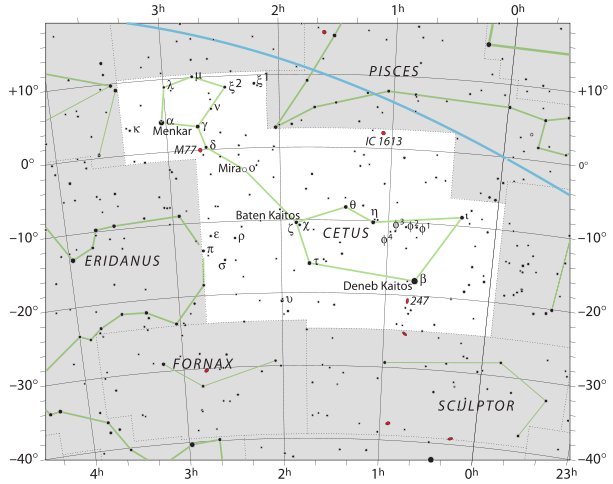
|
FEBR 17 |
18 |
19 (50) |
20 (*336) |
21 (400 + 17) |
22 (53) |
 |
 |
 |
 |
 |
 |
|
Gb4-13 (332) |
Gb4-14 |
Gb4-15 |
Gb4-16 (336) |
Gb4-17 (108) |
Gb4-18 |
 |
 |
 |
 |
 |
 |
|
Gb7-30 |
Gb7-31 (212) |
Gb8-1 |
Gb8-2 (214) |
(108 + 107) |
Gb8-4
(2 * 108) |
|
ξ¹ Ceti |
MIRA |
*34 |
ξ Arietis (*35.0) |
*36 |
*37 |
|
April 22 (112) |
23 (*33) |
24 |
25
(480, 115) |
26 |
26 |
|
Oct 22 (295) |
23 |
24 |
25 |
26 |
27 (300) |
|
ARCTURUS |
KHAMBALIA |
*217 |
FOMALHAUT |
FUM-AL-SAMAKAH |
η Centauri (*220.4) |
|
FEBR 22
(418) |
TERMINALIA |
24 (*340) |
25 (56) |
26 (400 +
22) |
2-27 |
FEBR 28 (59) |
 |
 |
 |
 |
 |
 |
 |
|
Gb4-18 |
Gb4-19 |
Gb4-20 (111) |
Gb4-21 |
Gb4-22 (342) |
Gb4-23 |
Gb4-24 |
 |
 |
 |
 |
 |
 |
 |
| Gb8-4 |
Gb8-5 (217) |
Gb8-6 |
Gb8-7 (448) |
Gb8-8 |
Gb8-9 |
Gb8-10 (222) |
|
*37 |
*38 |
*39 |
*40 |
BHARANI |
*42 |
DENEBOLA |
 |
 |
 |
 |
 |
 |
 |
|
Ra3-7 |
Ra3-8 |
Ra3-9 |
→ 8 * 8 |
Ra3-11 (65) |
Ra3-12 |
Ra3-13 |
 |
 |
 |
 |
 |
 |
 |
|
Aa6-77 (1157) |
→ 6 * 78 = 468 → 118 + 350 |
Aa6-79 |
Aa6-80 |
→ 121 + 1040 |
Aa6-82 |
Aa6-83 (1163) |
|
April 27 |
28 (118) |
29 |
30 (120) |
May 1 |
2 |
3 (123, 488) |
|
°April 23 |
24 |
25 (*35) |
26 (116) |
27 |
28 |
29 (*39) |
|
Liberalia |
"March 18 |
19 (78) |
20 |
21 |
22 (81) |
23 |
| ma iko - mai a here
tura koia ko te manu |
*40 |
BHARANI |
*42 |
DENEBOLA |
|
Iko. 1. To take away, to carry off, to
despoil, to seize food, to possess oneself of, to dispossess, to
deprive, to intercept, to subtract, to usurp, to arrogate to
oneself. Ikoa, to seize, to take possession. Ikoiko,
to seize, to deprive. PS Mgv.: iko, to take off, to deprive,
to bereave. Mq.: hiko, to take away, to carry off, to take by
force, to rob, to extract. Sa.: i'ofi, tongs. To.: hiko,
to take out of the fire. 2. Mq.: iko, to be on good terms.
Ha.: lio, to have great affection for. Churchill.
... Then Teke assumed royal
powers (pahera ariki) and passed them on to Iko.
Teke installed the king; Iko was (now) the king (ariki)
of the Hanau Eepe. Teke called out to the men, 'Iko is your king, oh
people (mahingo)!' The Hanu Eepe remained there. Teke
returned. (He) came to Oromanga (name corrected; alternative
translation: Along came the adopted rat, kiore ma(a)nga.).
That was Iko.
Twenty-five years ... [E:85] |
... The old man gave the Raven two small
sticks, like gambling sticks, one black, one multicoloured.
He gave him instructions to bite them apart in a certain way
and told him to spit the pieces at one another on the
surface of the sea. The Raven climbed back up the pole,
where he promptly did things backwards, just to see if
something interesting would occur, and the pieces bounced
apart. It may well be some bits were lost. But when he
gathered what he could and tried again - and this time
followed the instructions he had been given -
the pieces stuck and
rumpled and grew to become the mainland and Haida Gwaii
...

|
























